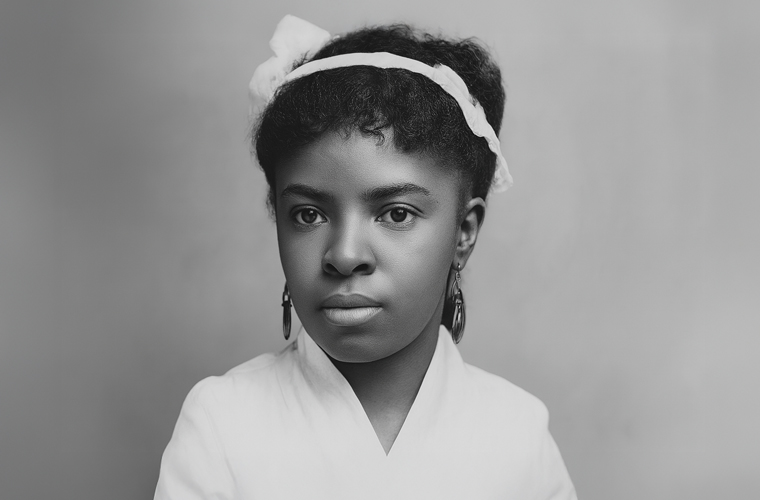Mary Eliza Mahoney was born on April 15, 1845 (though some sources cite April 16 or May 7), in Dorchester, Massachusetts, to Charles Mahoney and Mary Jane (Steward) Mahoney. As the eldest of three children in a free African-American family, Mahoney grew up in a time of profound racial and social challenges, with the United States embroiled in the Civil War and the struggle for abolition. Despite the limited opportunities available to black women during this era, Mahoney developed a passion for nursing in her teenage years, driven by a desire to serve others and break barriers in a segregated society.
At the age of 18, Mahoney began working at the New England Hospital for Women and Children in Roxbury, Massachusetts. Initially employed as a cook, washerwoman, and janitor, she spent 15 years in various support roles before being admitted to the hospital’s nursing school at age 33. The hospital, considered progressive for its time, was one of the few institutions that treated both white and black patients and had a charter provision allowing the admission of one black student and one Jewish student per nursing class. In 1878, Mahoney was one of 42 students accepted into the rigorous 16-month nursing program, which included grueling 16-hour workdays combining study, patient care, and hospital duties. Demonstrating remarkable resilience, she was one of only four students to graduate, earning her nursing degree on August 1, 1879. This achievement marked her as the first African-American woman in the United States to become a registered nurse (R.N.).
In the late 19th century, staff nursing positions at hospitals were scarce, especially for African Americans, due to pervasive racial discrimination. As a result, Mahoney registered with the Nurses Directory as a private duty nurse, providing care in patients’ homes. Her professional references noted her as “colored,” a designation that often posed barriers to employment. However, Mahoney’s reputation for calm, efficient, and compassionate care helped her overcome these obstacles. She served patients across multiple states, including Massachusetts, North Carolina, Washington, D.C., and New Jersey, earning widespread respect for her skill and professionalism. Her ability to foster trust with patients and their families made her a sought-after caregiver in an era when racial prejudice was rampant.
Mahoney was deeply committed to advancing opportunities for African-American nurses. She became an early member of the Nurses Association Alumnae of the United States and Canada, which later evolved into the American Nurses Association (ANA). Recognizing the systemic barriers faced by black nurses, she supported the efforts of Martha Minerva Franklin, who founded the National Association of Colored Graduate Nurses (NACGN) in 1908 to advocate for the inclusion and professional development of African-American nurses. Mahoney played a prominent role in the organization, delivering the welcoming address at its first annual convention in 1909. In 1911, she was honored with lifetime membership in the NACGN and appointed as the national chaplain, a role in which she led opening prayers and oversaw the induction and training of new officers.
In 1911, Mahoney relocated to New York to serve as the supervisor of the Howard Orphan Asylum for Black Children in Kings Park, Long Island. She held this position until her retirement in 1922, dedicating over four decades to nursing and caregiving. Her leadership at the asylum reflected her lifelong commitment to serving vulnerable populations.
Mary Mahoney’s contributions to nursing and civil rights were widely recognized during and after her lifetime. Several local affiliates of the NACGN were named in her honor, and 1936, the organization established the Mary Mahoney Medal, awarded annually to an African-American nurse who has made significant contributions to the profession. The inaugural recipient was Adah B. Thoms, a prominent nurse and advocate. After the NACGN merged with the American Nurses Association in 1951, the ANA continued to present the award, preserving Mahoney’s legacy. In 1976, Mahoney was inducted into the ANA’s Nursing Hall of Fame, and in 1993, she was posthumously inducted into the National Women’s Hall of Fame.
The Mary Mahoney Health Care Center, part of the Dimock Community Health Center (formerly the New England Hospital for Women and Children), stands as a testament to her impact on healthcare. Additionally, her grave in Woodlawn Cemetery in Everett, Massachusetts, has become a pilgrimage site for members of the ANA and the nursing sorority Chi Eta Phi, who honor her trailblazing contributions.
Beyond her professional achievements, Mahoney was a passionate advocate for social justice. She supported the suffragist movement, believing that voting rights were essential for achieving equality for all women. In 1921, at the age of 76, she was among the first women in New York City to register to vote after the passage of the 19th Amendment. A devout Baptist, Mahoney was an active member of the People’s Baptist Church in Roxbury, Massachusetts. Despite her private demeanor, she cultivated a wide network of friends within Boston’s African-American medical community. Standing just under five feet tall, Mahoney was described as dignified, compassionate, and deeply respected.
In 1923, Mahoney was diagnosed with metastatic breast cancer. She continued to carry herself with grace and dignity until her death on January 4, 1926, at the age of 80. Her legacy endures as a symbol of perseverance, compassion, and trailblazing achievement in the face of adversity.

